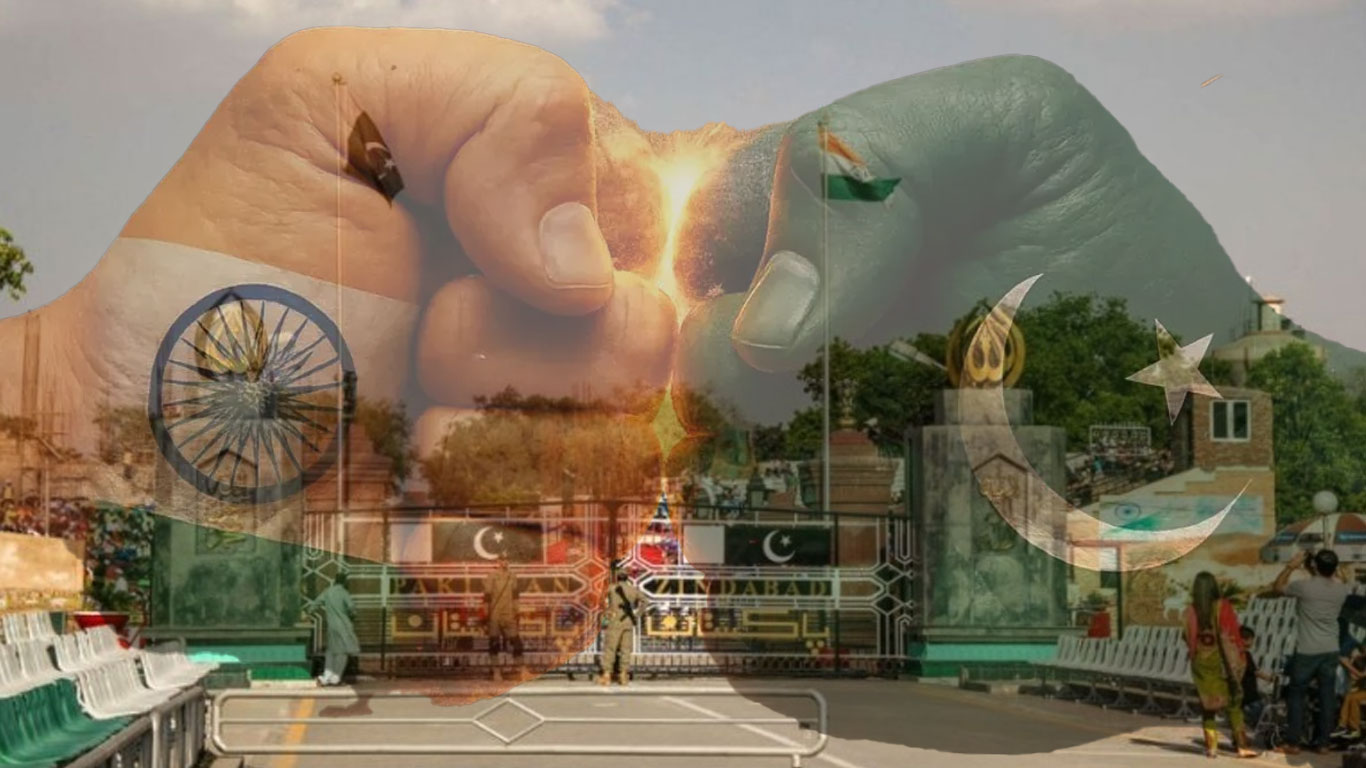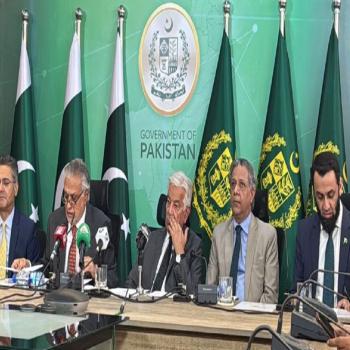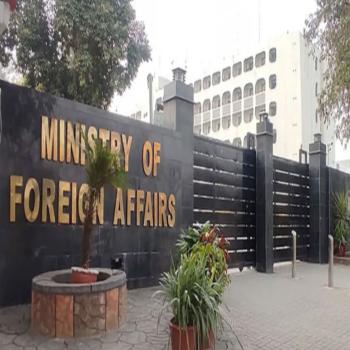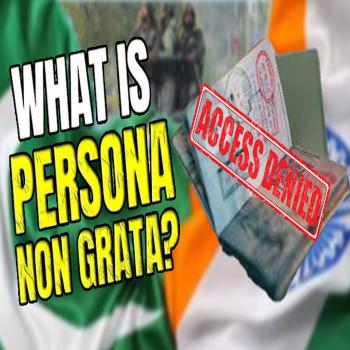Pakistan on Thursday closed the Wagah Border, suspended trade and air links with India, downgraded diplomatic relations, and halted all bilateral agreements in response to India’s allegations that Pakistan-based militants were behind a deadly terrorist attack in Pahalgam, Indian-occupied Jammu and Kashmir.
These sweeping decisions were taken during an emergency meeting of the National Security Committee (NSC) chaired by Prime Minister Shehbaz Sharif, with the country's civil and military leadership unanimously endorsing the measures.
The NSC termed the Indian actions as “hostile and illegal”, and Pakistan’s Foreign Office issued a strongly worded statement rejecting India’s accusations as “baseless and politically motivated”.
Backdrop: Pahalgam Attack and Indian allegations
The diplomatic crisis was triggered after an attack in Pahalgam, a scenic town in Indian-held Kashmir, claimed the lives of 26 civilians and injured dozens. India immediately blamed the incident on Lashkar-e-Taiba (LeT), claiming the attackers crossed over from Pakistan.
Indian Prime Minister Narendra Modi, speaking at a rally in Uttar Pradesh, vowed revenge, stating, “We will not forget; we will not forgive. We will hunt down the perpetrators wherever they are.”
India further escalated matters by suspending the Indus Waters Treaty (IWT)—a 1960 water-sharing agreement brokered by the World Bank—and downgraded diplomatic ties, demanding Pakistan’s High Commissioner return home. India also limited Pakistan High Commission staff in New Delhi to 30 officials and expelled three Pakistani diplomats.
NSC strikes back: borders closed, agreements suspended
Responding to India’s actions, Pakistan’s NSC decided to:
- Close the Wagah Border crossing to all Indian nationals, with limited exceptions for Sikh pilgrims.
- Suspend all bilateral agreements, including the 1972 Simla Agreement, citing Indian violations of international law and cross-border aggression.
- Suspend all trade and transit routes, including third-party transit through Pakistan.
- Ban Indian airlines from using Pakistani airspace, affecting hundreds of weekly flights to the Gulf, Central Asia, and Southeast Asia.
- Revoke all Saarc Visa Exemption Scheme (SVES) visas issued to Indian nationals except Sikh pilgrims.
- Declare Indian defence, naval, and air advisors posted in Islamabad as persona non grata with a deadline of April 30 to leave Pakistan.
A senior government official said, “This is not just a diplomatic row—India has crossed red lines by suspending the Indus Waters Treaty. We will now operate on a principle of reciprocity and full-spectrum deterrence.”
Indus Waters Treaty suspension seen as 'act of war'
Pakistan’s Foreign Minister Ishaq Dar held a press conference, warning India that suspension of the Indus Waters Treaty is tantamount to an act of war.
“India cannot weaponise water. This treaty was not signed out of goodwill—it was a result of international mediation. If India proceeds with stopping our water, we will respond with full force, diplomatically and otherwise.”
The treaty, signed in 1960 under World Bank arbitration, regulates water sharing of the Indus basin. It has survived multiple wars between the two countries. Pakistan is particularly dependent on rivers flowing from Indian-administered Kashmir.
India’s actions against Pakistan online and on ground
India also ordered the suspension of the Pakistani Government’s official X (formerly Twitter) account, making it inaccessible in India. Simultaneously, Indian police cracked down on Pakistani journalists, summoning and threatening correspondents for international networks operating in India.
Pakistan’s Ministry of Information and Broadcasting condemned the digital censorship, calling it a violation of freedom of expression and a reflection of India’s growing intolerance towards dissent.
“This is digital apartheid. Silencing Pakistani voices won’t erase the truth about what’s happening in Kashmir,” said Federal Minister for Information and Broadcasting Attaullah Tarar.
Diplomatic downgrades and war of words
In Islamabad, the Indian High Commission’s activities have been severely curtailed. Indian High Commissioner Pavan Kapoor has been summoned twice in 72 hours and was handed protest notes over India’s handling of the situation.
Pakistan also recalled its High Commissioner Saad Ahmad Warraich from New Delhi for consultations, signalling a potential breakdown of diplomatic channels.
“India’s repeated attempts to internationalise false narratives and shift blame for its own policy failures in Kashmir will not succeed,” said Pakistan’s Foreign Office spokesperson Mumtaz Zahra Baloch.
Domestic and international reactions
Mass protests erupted in Lahore, Karachi, Multan, and Islamabad, where demonstrators burnt Indian flags and chanted slogans against Prime Minister Modi. Meanwhile, opposition leader Imran Khan, in a rare show of unity, backed the government’s position, stating, “National security comes first. There should be no compromise when our sovereignty is threatened.”
Globally, the United Nations, the United States, and China have expressed concern. The UN Secretary-General urged restraint and dialogue. The US State Department called for an independent investigation into the Pahalgam incident. China reiterated its stance on peaceful resolution of disputes in South Asia and offered to mediate.
Kartarpur Corridor remains open—for now
In a sign of religious tolerance and strategic messaging, Pakistan announced that the Kartarpur Corridor, which allows Sikh pilgrims from India visa-free access to Gurdwara Darbar Sahib, will remain open.
“We draw a clear line between political disputes and religious freedom. Sikh pilgrims are welcome here,” said Punjab Governor Baligh ur Rehman.
High alert and diplomatic crossroads
With military units on both sides placed on high alert and diplomatic channels virtually frozen, the Indo-Pak relationship has entered one of its most volatile phases in years. Observers warn that any miscalculation could lead to serious conflict in a region where two nuclear-armed rivals remain locked in a cycle of mistrust, hostility, and historical grievances.
As the international community watches closely, the coming weeks will determine whether the subcontinent inches toward reconciliation—or confrontation.






